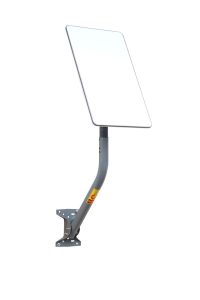MEO Satellites: Revolutionizing Global Connectivity with Medium Earth Orbit Technology
MEO satellites, or Medium Earth Orbit satellites, are a type of satellite that operates in an orbit between 2,000 and 36,000 kilometers above the Earth’s surface. This orbit is higher than Low Earth Orbit (LEO) satellites but lower than Geostationary Orbit (GEO) satellites. MEO satellites are designed to provide a range of services, including navigation, communication, and Earth observation, and are becoming increasingly important for global connectivity.
How MEO Satellites Work
MEO satellites use a network of satellites in Medium Earth Orbit to provide coverage of the entire Earth. Each satellite in the network is connected to several others, allowing data to be transmitted and received seamlessly. This network of satellites enables global communication, navigation, and Earth observation services. MEO satellites are particularly useful for providing internet connectivity to remote or underserved areas, where traditional fiber-optic or cellular networks may not be available.
Benefits of MEO Satellites
MEO satellites offer several benefits over traditional GEO satellites. One of the main advantages is their lower latency, which allows for faster data transfer and communication. MEO satellites are also more resistant to interference and have a higher signal-to-noise ratio, making them more reliable and efficient. Additionally, MEO satellites can provide higher bandwidth and faster speeds than GEO satellites, making them ideal for applications that require high-speed data transfer, such as video streaming and online gaming.
Applications of MEO Satellites
MEO satellites have a range of applications, including navigation, communication, and Earth observation. They are used in GPS systems, such as the European Union’s Galileo system, to provide location information and timing signals. MEO satellites are also used for communication services, such as satellite phone networks and broadband internet access. Furthermore, they are used for Earth observation, such as monitoring weather patterns, tracking climate change, and managing natural resources.


